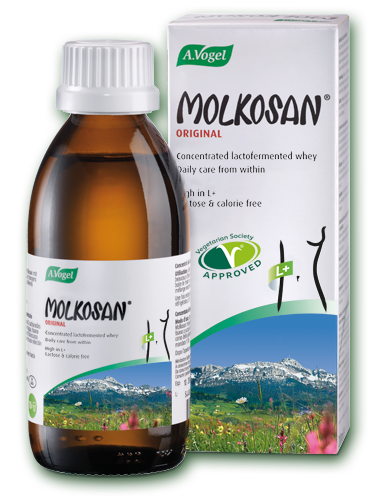Understanding the links between obesity and IBS
It's estimated that over 1/3 of our population are now classed as overweight or obese. However, unfortunately a number of other health complaints are also on the up, including digestive conditions such as IBS. So, is there a causative link here, or is this just by chance? Some brand new research helps us to understand this relationship a little better.1
Firstly, when it comes to obesity, we are beginning to understand that it may not be as simple as simply 'eating less'. Actually, we suspect the pathophysiology of obesity may involve different hormonal interactions, influences at a microbiological level (namely involving our gut bacteria), as well as nutritional inputs also having a part to play.1
Therefore, there may be some more complex mechanisms at play than we might have first assumed, some of which may crucially originate in the gut.
Here I explore some of the possible ways in which obesity and IBS may be linked, in light of the new research, plus how you can approach these issues going forward:
1. Weak digestive power
Firstly, certainly in the case of IBS, we understand that weak digestive power could have a part to play in the onset of symptoms.
Many of our vital digestive functions start off in the stomach. We rely on sufficient stomach acid to be released and your gastric secretions should have a specific pH to help breakdown the tough structures that make up protein, fats and all the elements from your diet. However, importantly, stomach acid is also crucial for helping to keep pathogens at bay.
Therefore, if this process isn't working effectively and either partly undigested food or bugs will be able to travel from the stomach into the intestines. This could be having some influence, particularly on the emergence of many of the symptoms we associate with IBS including bloating, flatulence or altered bowel movements.
In terms of obesity, there may also be some links with digestive power. We rely on sufficient stomach secretions to help break down the healthy fats and protein we consume through our diet. Interestingly, both of these macronutrients, in particular, are thought to be extremely important for helping to keep us feeling fuller for longer so, if this is happening properly, it could be affecting our appetite and ultimately our waistline.
2. Gut bacteria

Next, as we travel from the stomach into the intestines, gut bacteria becomes top of mind.
Interestingly, the balance of bacteria that exist here are thought to have an important influence on both the symptoms of IBS2 and our ability to maintain a healthy body weight3. Whilst there are a vast number of different types of bacteria, these can broadly be split into good and bad types and this ratio is thought to be crucial in the pathogenesis of certain conditions including IBS or obesity.1
Interestingly, when it comes to obesity, our gut bacteria may also have the potential to alter the calories we extract from certain foods1, although more research is required in this area to help us understand these mechanisms better.
3. Inflammation
Whilst traditionally inflammation was associated with more acute conditions such as Inflammatory Bowel Disease (IBD) or arthritis, it's now being more readily accepted that lower-grade or sub-clinical inflammation may be having a part to play when it comes to a number of other, more chronic, conditions including both IBS and obesity.1
What can be done to help?
1. Support your stomach
Employing helpful habits such as taking your time with meals and chewing properly can all help give your stomach the best chance to work at its best; as can supplementing your diet with some herbal bitters such as Yarrow.
Sign up to our 5 Steps to Better Digestion programme for a more in depth guide.
2. Have a focus on good gut bacteria
We're gradually beginning to understand more and more about the important roles our gut bacteria may have to play in supporting our overall health; with these new insights today adding to the plethora of information already available.
Luckily, we're also learning a number of ways we can positively influence our good gut bacteria; from including a healthy diet rich in dietary fibre, to taking part in regular, moderate exercise4, plus there are some supplements available that can also help support your internal gut environment.
Molkosan is a rich source of L+ lactic acid and in this way it acts as a prebiotic – helping to set the correct conditions for your good gut bacteria to grow optimally.
My Top Tip: Take Molkosan 1-2 times daily, between meals and in a tall glass of water for best effects. Take Molkosan 1-2 times daily, between meals and in a tall glass of water for best effects.
|
3. Manage inflammation
Following an anti-inflammatory diet full of fresh foods has had positive associations with both managing the symptoms of IBS, and protecting against obesity.
Foods to focus on include fruit, vegetables and wholegrains and sources of healthy fats including anti-inflammatory omega-3. Also aim to prioritise fresh foods over more processed varieties as this should put you in good stead for calming some of the symptoms of IBS, as well for maintaining a healthy weight. For more IBS dietary tips, click this link.
1. https://link.springer.com/article/10.1007/s42000-019-00113-9
2. https://www.ncbi.nlm.nih.gov/pmc/articles/PMC6039952/
3. https://www.ncbi.nlm.nih.gov/pmc/articles/PMC5960470/
4. https://physoc.onlinelibrary.wiley.com/doi/10.1113/EP087404







